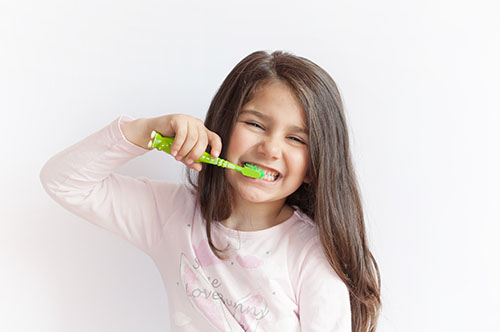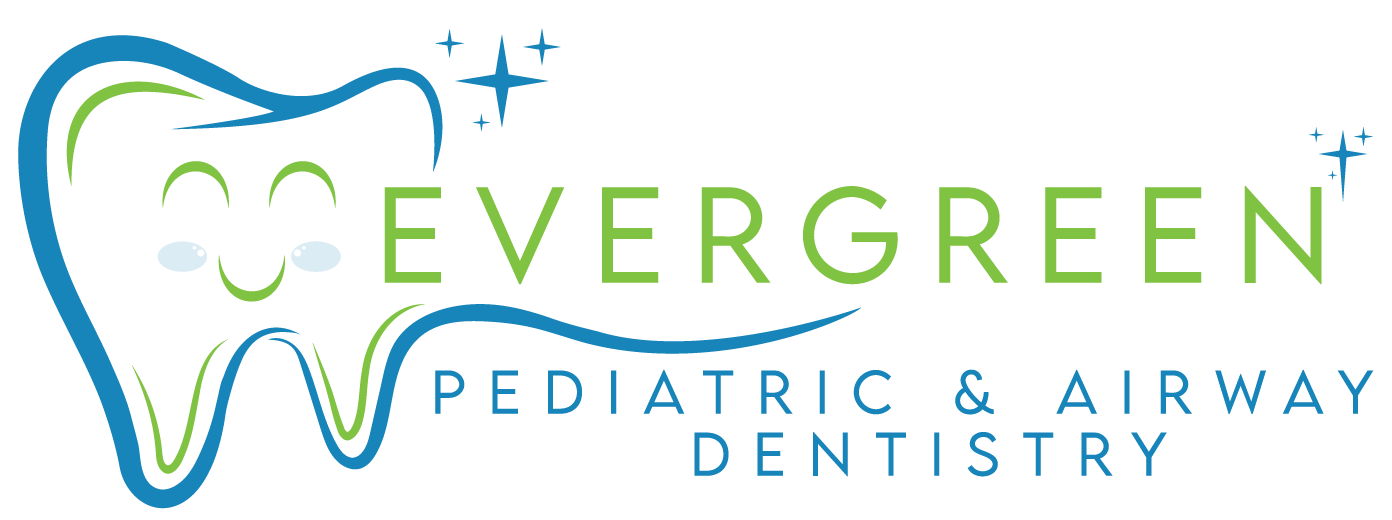Why Early Visits to a Pediatric Dentist Matter
As parents, we always want what’s best for our children. From their nutrition to their education, we prioritize their well-being in every aspect of their lives. One crucial area that is often overlooked, however, is their dental health.
It’s easy to assume that because our children’s baby teeth will eventually fall out, they don’t require much attention. However, this couldn’t be further from the truth. In fact, early visits to a pediatric dentist are essential for setting our children up for a lifetime of good oral health.
In this blog post, we’ll explore why early visits to a pediatric dentist matter and how they can benefit our little ones in the long run. From preventive care to early detection of potential issues, these visits are a crucial step in ensuring our children’s healthy smiles. So let’s dive in and learn why prioritizing our children’s dental health from an early age is so important. Let’s give them the best start for a lifetime of healthy teeth and gums!
Importance of Dental Hygiene in Children and How It Affects their Overall Health
Maintaining good dental hygiene is crucial for a child’s overall health. It not only ensures strong and healthy teeth but also contributes to their general well-being. Neglecting dental care can result in various issues, including cavities, gum disease, bad breath, and even tooth loss. Therefore, it is essential for parents and caregivers to instill good dental habits in children from a young age to prevent these problems and promote their overall health.
One of the main reasons why dental hygiene is vital for children is because it establishes the foundation for their oral health as they grow older. Teaching children proper brushing and flossing techniques, along with regular visits to the dentist, can help avoid future complications and maintain a healthy mouth. Neglecting dental hygiene during childhood can also lead to more serious health issues later in life, such as heart disease and diabetes. By prioritizing dental hygiene in children, parents and caregivers not only promote a beautiful smile but also safeguard their child’s overall health.
In addition to physical health benefits, good dental hygiene can positively impact a child’s mental well-being. Children with poor oral hygiene may feel self-conscious about their teeth, which can affect their self-esteem and confidence. Proper dental care can enhance a child’s appearance, boosting their self-image and overall happiness. By teaching children the importance of maintaining good oral hygiene, parents also instill crucial values of self-care and responsibility for one’s health. This can have a profound impact on a child’s attitude towards their overall well-being in the future.
Prioritizing dental hygiene in children is essential for their overall health and well-being. By practicing good dental habits from a young age and seeking regular professional dental care of your children, parents and caregivers can help their children avoid dental issues, protect their physical health, and promote a positive self-image. Let’s ensure that our children have healthy smiles and a solid foundation for a lifetime of oral health.

Marinating Children’s Dental Hygiene
Understanding Oral Health at Different Stages of Childhood
Understanding the importance of dental hygiene in children is crucial. Let’s dive deeper into how oral health changes throughout different stages of childhood. From infancy to adolescence, our children’s mouths undergo various developmental phases, each demanding specific attention and care.
- Infancy: During this stage, the primary focus is on preventing tooth decay and establishing good habits for future dental care. After feeding, parents should gently clean their baby’s gums with a soft cloth. It’s important to avoid putting them to bed with a bottle, as this can lead to tooth decay.
- Toddlerhood: As toddlers develop their first set of teeth, parents should start brushing them twice a day using a small amount of fluoride toothpaste. Monitoring their diet and limiting sugary snacks and drinks is also essential.
- Preschool: At this stage, children should have all their primary teeth. Parents can begin teaching them how to brush and floss properly. It’s recommended to schedule their first visit to a pediatric dentist by age three.
- School-age: As children enter school, they become more independent in their daily routines, including oral hygiene. Parents should continue monitoring their brushing and flossing habits, while regular dental checkups play a vital role in detecting any potential issues.
- Adolescence: The teenage years bring new challenges for oral health, such as orthodontic treatment and wisdom teeth extraction. Encouraging good oral hygiene habits and maintaining regular visits to the dentist are crucial during this stage.
Understanding how oral health changes at different stages of childhood empowers parents and caregivers to provide appropriate care for their child’s teeth and gums. By taking a proactive approach and seeking professional dental care, we can ensure that our children have healthy smiles throughout their lives.
The Role of a Pediatric Dentist in Children’s Dental Health
Pediatric dentists specialize in providing dental care for children from infancy through their teenage years. They undergo an additional two to three years of training after dental school, focusing on the unique oral health needs of children. These professionals not only have expertise in treating dental issues in children but also know how to create a comfortable and positive experience for young patients. Here are some ways pediatric dentists play a crucial role in children’s dental health:
- Preventive care: Pediatric dentists focus on preventing dental issues through regular checkups, cleanings, and fluoride treatments. They also educate parents and children on proper oral hygiene practices.
- Early detection of problems: Regular visits to the pediatric dentist allow for early detection of potential issues such as cavities, misalignment, and gum disease. This can prevent these problems from becoming more severe in the future.
- Specialized care: Children with special healthcare needs may require specialized dental care, which pediatric dentists are trained to provide. They have experience working with children who have physical or developmental disabilities, making them better equipped to handle their unique needs.
- Creating a positive experience: Pediatric dentists understand that children may feel anxious or fearful during dental visits. They use child-friendly equipment and techniques to create a comfortable and positive experience for their young patients, helping them develop a positive attitude towards oral health.
- Addressing behavioral issues: Children with behavior or anxiety issues may have difficulties sitting through a dental appointment. Pediatric dentists are trained to handle these situations and can help make the experience more manageable for both the child and the parent.
Proper dental care in children requires the expertise of pediatric dentists who are trained to meet the specific needs of young patients. By working closely with these professionals, parents and caregivers can ensure that their children have healthy smiles and a positive attitude towards dental care.

Pediatric Dentistry Service
When Should a Child’s First Dental Visit Be?
When it comes to your child’s oral health, starting early with their dental care is crucial for their overall well-being. By following a recommended timeline, you can ensure that your child receives the best dental care possible.
- First Visit (6 months old): Ideally, your child’s first dental visit should take place within six months of their first tooth appearing or by their first birthday, whichever comes first. This initial visit is all about getting your child comfortable with the dentist and establishing a positive relationship.
- Next Visit (2-3 years old): If your child’s first tooth didn’t appear until after their first birthday, their next dental visit should be scheduled by the time they turn two or three. During this visit, the dentist will thoroughly check for any potential issues and provide early intervention if necessary.
- Regular Check-ups (4-6 years old): By this age, your child should have all their primary teeth in place. It’s crucial to bring them in for regular check-ups and cleanings every six months to maintain their oral health and ensure proper development of their permanent teeth.
Early dental visits not only allow the dentist to identify and address any potential problems early on, but they also help your child become more comfortable with the dental experience. This can prevent fear or anxiety surrounding dental visits in the future, making it easier for them to prioritize their oral health as they grow older.
By prioritizing your child’s dental health from an early age, you are setting them up for a lifetime of healthy smiles. Don’t hesitate to schedule their first dental visit and give them the best start to their oral health journey.
Importance of Establishing Good Oral Habits in Children
Establishing good oral habits from a young age is crucial for children’s overall health and well-being. Good oral hygiene practices not only prevent dental issues but also contribute to their overall physical health. Here are some reasons why it’s important to prioritize good oral habits in children:
- Prevents cavities: Brushing twice a day and flossing daily help remove plaque and bacteria that can lead to cavities. By establishing these habits early on, children can prevent tooth decay and other oral health issues.
- Promotes overall health: Poor oral hygiene has been linked to a variety of health problems such as heart disease, diabetes, and respiratory issues. Good oral habits contribute to maintaining overall physical health in children.
- Develops healthy self-care routines: By teaching children to care for their teeth and gums, we also teach them the importance of self-care. These habits can extend beyond oral health and help foster a sense of responsibility and independence in children.
- Saves money: Regular dental visits and proper oral hygiene practices can save parents and caregivers money in the long run. Preventing dental issues through good habits can prevent costly treatments in the future.
- Improves confidence and self-esteem: A healthy smile can boost a child’s confidence and self-esteem. Teaching good oral habits from a young age can help children feel proud of their smiles and maintain a positive self-image.
By establishing good oral habits in children, we are not only protecting their dental health but also setting them up for a lifetime of overall well-being. As parents and caregivers, it’s our responsibility to teach and encourage these habits from an early age. Let’s work together to ensure that our children have healthy smiles and a positive attitude towards oral hygiene.

Establishing Good Oral Habits in Children
What Happens During the First Visit?
During your child’s first dental visit, the pediatric dentist focuses on building a positive relationship and ensuring a comfortable experience. The visit includes several key elements:
- Gentle oral examination: The dentist conducts a thorough examination of your child’s mouth, checking for tooth decay, gum disease, and other concerns.
- Cleaning and fluoride treatment: If necessary, the dentist cleans your child’s teeth and provides a fluoride treatment to strengthen their tooth enamel.
- Tips for proper home care: The dentist offers valuable advice on how to properly care for your child’s teeth at home, including brushing techniques and the importance of flossing.
- Addressing concerns and questions: This is your chance to discuss any oral health concerns or ask questions with the pediatric dentist, who is there to provide guidance.
- Establishing a follow-up plan: The dentist collaborates with you to schedule the next visit and discuss any necessary treatments or preventive measures.
By creating a positive and comfortable experience during the first visit, pediatric dentists lay the foundation for future dental visits. This initial visit also serves as an opportunity for parents and caregivers to gain knowledge about proper dental care at home.
Attending your child’s oral health from an early age is crucial for their overall well-being. With the guidance of a kids dentist, you can ensure that your child develops good dental habits that will last a lifetime.
Creating a Positive Dental Experience for Children
For many children, visiting the dentist can be a scary and unfamiliar experience. As parents and caregivers, we want to make sure that our children have a positive attitude towards dental visits and prioritize their oral health. Here are some tips for creating a positive dental experience for your child:
- Start early: The earlier you introduce your child to the dentist, the more comfortable they will be with the experience. Begin scheduling visits by their first birthday or when their first tooth appears.
- Choose a pediatric dentist: Pediatric dentists specialize in working with children and are trained to create a positive and comfortable environment for them.
- Use positive language: Avoid using words that may scare or intimidate your child, such as “shot” or “drill.” Instead, use positive and reassuring language to explain what will happen during the visit.
- Read books or watch videos about dental visits: There are many children’s books and videos available that can help familiarize your child with the dental experience in a fun and friendly way.
- Be a role model: Children often learn by imitating their parents, so make sure to prioritize your own oral health and demonstrate good habits at home.
By following these tips and creating a positive dental experience for your child, you can help them develop a positive attitude towards oral health and create a foundation for healthy habits that will last a lifetime. Let’s work together to ensure that our children have happy and healthy smiles!
Establishing good oral habits in children is essential for their overall health and well-being. By preventing dental issues, promoting self-care routines, and developing a positive attitude towards oral hygiene, we can set our children up for a lifetime of healthy smiles. With the guidance of pediatric dentists and the support of parents and caregivers, we can ensure that our children have happy and healthy smiles that they can be proud of. Let’s prioritize our children’s oral health and work together to create a positive dental experience for them. So, let’s start teaching good oral habits from an early age and encourage our children to have a lifelong commitment to their oral health. As the saying goes, “prevention is better than cure,” so let’s take the necessary steps to prevent dental issues and promote healthy smiles in our children. Together, we can make a positive impact on our children’s oral health and overall well-being. Let’s give them the gift of a healthy smile for life!
Evergreen Pediatric Dentistry
https://www.google.com/maps?cid=14720788683151219551
12910 Totem Lake Blvd NE #103, Kirkland, WA 98034, United States
(425) 814-3196
https://evergreenkidsdentist.com/


